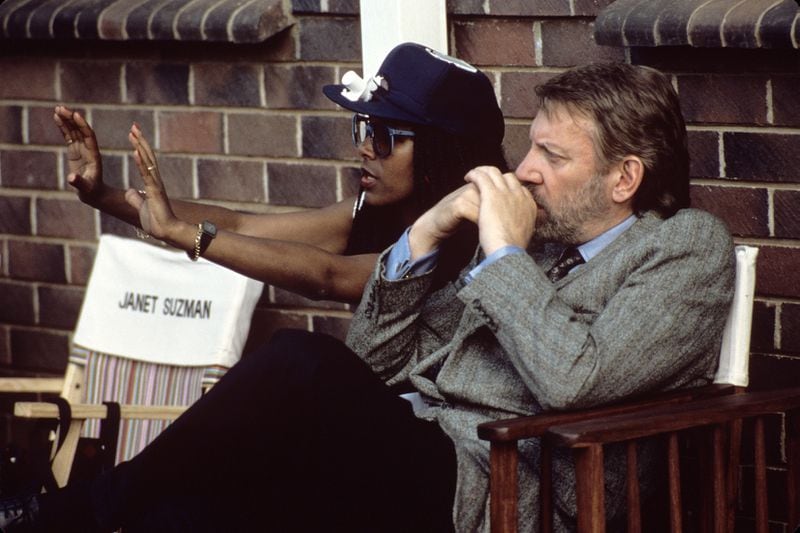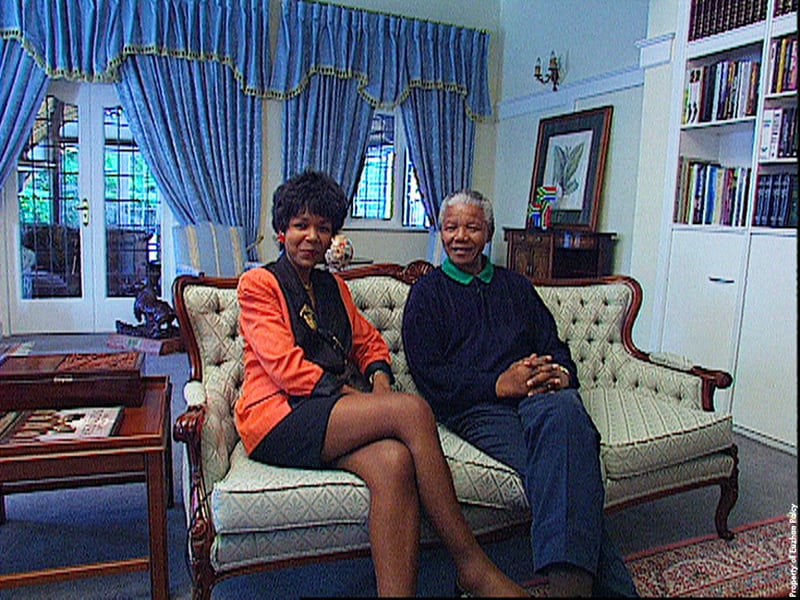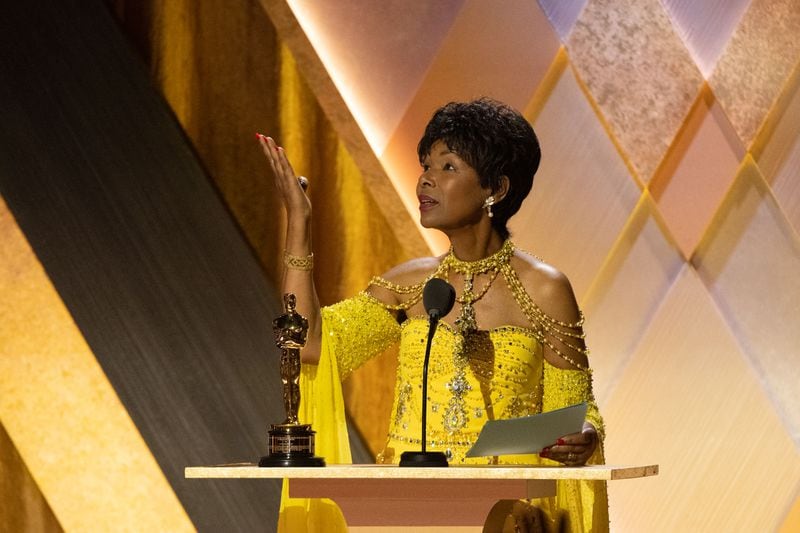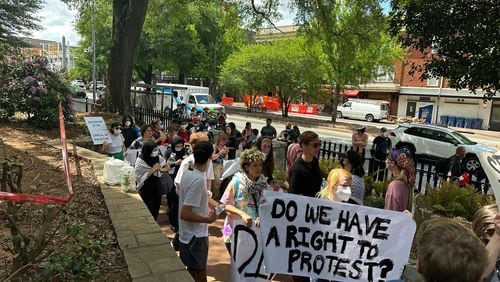This story is one in a series of Black History Month stories that explores the role of resistance to oppression in the Black community.
Euzhan Palcy found success directing and writing for film and TV in Hollywood starting in the 1980s. Her early efforts included the much acclaimed “Sugar Cane Alley” and “A Dry White Season.”
“Sugar Cane Alley,” filmed in French with English subtitles, won a prestigious French award and the film on apartheid, “A Dry White Season,” starring Marlon Brando, garnered an Academy Award nomination for the actor.
But by the early 2010s, Palcy had become frustrated that her projects presenting stories of Black experiences were being rejected by producers and studios and decided to stop making movies. That decision by Palcy, a native of Martinique in the French West Indies, put on hold a passion project on Bessie Coleman, the first African American and Native American woman pilot.
“I couldn’t stand the fact that (they didn’t) want my stories,” Palcy said. “(They were) telling me that Black isn’t bankable. Female isn’t bankable. And (they were) telling me that if it’s Black and female, that’s even worse. ‘It won’t work. We won’t know how to sell that.’”
The director, 65, believes that mindset is changing.
Last November, Palcy received an honorary Oscar for her overall directing work. Actress Viola Davis presented her with the award during the Governors Awards ceremony. The Governors Awards are granted by the Academy’s board of governors annually. Palcy’s award was for lifetime achievement. Highlights of the event will be shown during the Academy Awards event in March.
“I realize how much ahead of my time I have been ....,” Palcy said. Today, dozens of Black directors are women presenting a variety of stories of African American life on the big screen.
Palcy’s 1983 film “Sugar Cane Alley,” told the story of a young boy seeing the realities of colonial rule and workers in the sugar cane fields of Martinique in the 1930s. The film won the Silver Lion for best direction at the 1983 Venice Film Festival, a first for a Black director. The film also won the French César Award for best first work. That award was the first César won by a woman director and by a Black filmmaker.
Credit: Courtesy of David James/MGM/jpg and Euzhan Palcy
Credit: Courtesy of David James/MGM/jpg and Euzhan Palcy
After “Sugar Cane Alley” and “A Dry White Season,” in 1989, more films followed as well as working in writing and directing for television.
In 2001, Palcy directed “The Killing Yard” starring Alan Alda, Morris Chestnut and Rose McGowan. The story is set in prison during the time period of the 1971 Attica prison riots.
By the early 2010s, Palcy grew frustrated by producers describing her proposed projects with Black lead characters as “unbankable.” Decision-makers who would turn down her ideas sent screenplays and other stories for her to direct. But those offers had no people of color in the characters.
“I said, ‘no and no and no.” Palcy recalled. Other filmmakers could provide what the producers wanted, she said. But Palcy was only willing to accept the work if in exchange she could move forward with the projects she wanted to create.
Credit: Courtesy of JMJ Productions and Euzhan Palcy
Credit: Courtesy of JMJ Productions and Euzhan Palcy
The director said something in her mind and spirit led her to decide to step back from making movies if she couldn’t tell stories that she believes are important to bring to public awareness.
Away from the film industry, Palcy continued to write screenplays, she said, and mentored aspiring filmmakers. She visited film students at universities as well as high schools including a school in Martinique named after her.
Palcy said she emphasizes the importance of education in filmmaking, camera angles and camera technicalities because new filmmakers will find that others will doubt their knowledge and capabilities.
“Don’t let anyone take your creativity away from you because you are a beginner and don’t know (how to get at what you’re trying to create),” she said. “Years ago, women filmmakers were so rare.”
Palcy understands that now times have changed, she said.
Her story on Bessie Coleman is currently in development.
Palcy’s inner rebellion is being embraced with new appreciation through honorary awards and media.
While introducing the filmmaker at the Governors Awards, actress Viola Davis said to Palcy, “You did not defend your womanhood. You did not defend your Blackness. You used it as warrior fuel.”
Credit: Al Seib / ©A.M.P.A.S.
Credit: Al Seib / ©A.M.P.A.S.
“On stage, when I went to get that statue, I was absolutely moved,” Palcy said of the Academy Award honor. “I didn’t even know if I would be able to properly say the words that I wrote from my heart …
Last summer, Palcy received a medal of honor from the Society of Dramatic Authors and Composers in Paris. A core value of the society is to be in solidarity with artists who “fight to ensure access to culture to all,” the organization website states.
Credit: Michael Yada / ©A.M.P.A.S.
Credit: Michael Yada / ©A.M.P.A.S.
Palcy’s own kind of activism was sparked by age 11 in Martinique when she realized she wanted to become a filmmaker.
She had been going to the movies every Sunday for a year and was both captivated and troubled watching stories unfold on the big screen.
None of the actors or movie plots represented people of color except for occasional American films, she said, in which an actor portrayed a degrading character. In those instances, the movie distributor would raise the ticket price knowing Black people would flock to the screening “even if it was terrible,” Palcy said.
“Because (the movie distributor) thought people were starving to see themselves,” she added.
Curious as a child, Palcy became upset watching the film offerings and would persistently ask her mother, “Why is none of us on the screen?”
Palcy’s mother gave her the book “Black Shack Alley” by Joseph Zobel that would become the basis for her first film “Sugar Cane Alley.”
“She didn’t know by doing that, (what) that would create in me. It was just like a volcano …,” Palcy said.
She said that after reading the book as a young girl, she knew she wanted to present stories on the big screen that were missing — stories and life experiences of people of color.
“Sugar Cane Alley” received high praise from critics and the public including Atlanta. The director visited Atlanta for the screening of the French film with English subtitles in 1985 for the Third World Film Festival.
The screening in the auditorium at Atlanta Public Library drew hundreds and resulted in an unplanned simultaneous screening in the building lobby, The Atlanta Journal-Constitution reported.
Palcy said she wants to return to Atlanta for another screening of “Sugar Cane Alley.”
“I never forgot that great time,” she said. “It would mean so much for me to go back because it’s a new generation (of moviegoers).
See video at the top of the story.
This year, the AJC’s Black History Month series will focus on the role of resistance to forms of oppression in the Black community. In addition to the traditional stories that we do on African American pioneers, these pieces will run in our Living and A sections every day this month. You can also go to ajc.com/black-history-month for more subscriber exclusives on the African American people, places and organizations that have changed the world.










